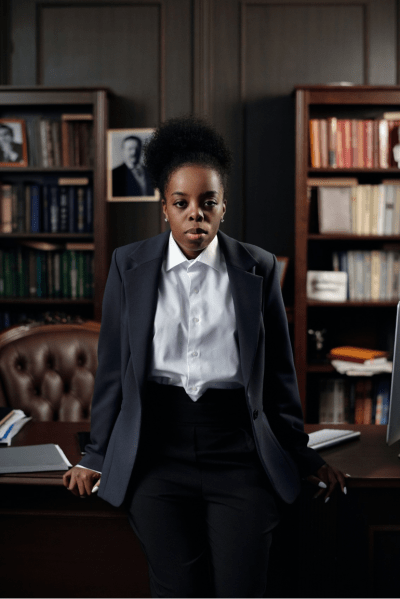If you are in a truck accident, you need to contact a lawyer to help you get the compensation you deserve. You should do a detailed description of what happened, and take pictures of the crash scene. This will help your lawyer prepare your case and prove your point to the insurance company.
In addition, you may have to deal with insurance adjusters from the trucking company, and they may attempt to settle your case at a low amount. Avoid negotiating with them or signing anything that could damage your case.
Remember that these adjusters are hired to pay as little money as possible, so you need to hire a professional to make sure you get the best compensation possible.
Getting a truck accident lawyer
If you’ve been involved in a truck accident and need help with your case, you may need to hire a trucking accident lawyer. In addition to helping you recover compensation for your injuries, a truck accident attorney can identify the responsible party, prove negligence, and estimate your damages. Trucking accident lawyers can assist you in pursuing a claim, regardless of how small or large it is.
First, it’s important to document the accident scene as well as any damages to your vehicle. If you can, get pictures of the vehicle and the truck driver’s license plate. The truck driver may attempt to cover up the damages, but it’s your job to keep the evidence from being destroyed.
Trucking accidents are complex and often involve multiple parties. While the truck driver is most likely at fault, other drivers may have contributed to the accident and reduce the amount of compensation you receive. Click here for more information about the legal definition of fault.
Getting a trucking accident lawyer is essential for your case. Your recovery time can be extensive, particularly if you’ve suffered brain injuries. You may also have to spend a long time in the hospital and require long-term care.
In addition to contacting your lawyer, it’s important to seek medical attention. This will help you treat your injuries and create an official record of the crash. This record can be a valuable piece of evidence when it comes time to make a trucking accident claim. It’s also vital to take photographs or videotape the scene of the crash and your injuries.
Another benefit to hiring a trucking accident lawyer is that they can preserve evidence. A lawyer can help you collect witnesses’ statements and photograph the scene of the accident and the other vehicles involved in the crash. Trucking companies are notorious for misplacing or destroying evidence, and a lawyer can help you preserve the evidence that will prove your case and collect the compensation you deserve.
The trucking company should be held responsible for the accident. This may include the driver, the owner of the truck and trailer, or the freight owner. In some cases, the trucking company or the manufacturer of the truck can be held liable for accidents caused by their employees or faulty products.

Dealing with insurance companies
When hiring a trucking accident lawyer, there are certain things you should do to ensure that your case is as strong as possible.
You should remember that the insurance company is not on your side and will do whatever it takes to protect its profits, including using unfair tactics to avoid liability. You need an experienced trucking accident attorneyto help you navigate these tricky waters. This is the best way to ensure you receive the payout you need.
It is important to remember that truck drivers usually have millions of dollars in insurance coverage. This means that insurance companies will go to great lengths to avoid liability, and they will hire experienced adjusters to make sure that you are unable to get a fair settlement. You should never provide the insurance adjuster with written statements or information that they can use against you.
Trucking collisions often involve multiple parties. In contrast to car collisions, where one party is liable for the collision, truck collisions may involve many other parties. For example, the owner of the truck and the cargo loader may both be held responsible if a maintenance problem caused the collision. The manufacturer of the truck may also be held accountable if the truck was defectively designed.
In some cases, truck manufacturers don’t catch defective parts until it is too late to repair or replace them. When this happens, the manufacturer or mechanic who worked on the truck could be held liable. Proper maintenance and inspections of trucks are essential to ensure they are in good working order. Failure to do so could cause an collision and result in injuries for others.
Your attorney will have to deal with insurance companies. They might call you or try to settle the case by offering you thousands of dollars. However, it is important to understand your rights and ensure you get the maximum compensation that you deserve. Your attorney will be able to tell you what to do, and they will help you understand what’s best for your case.
Dealing with adjusters
You may have to deal with insurance adjusters after a trucking collision, and they will try to pressure you to accept a low-ball settlement. Click the link: https://en.wikipedia.org/wiki/Claims_adjuster for more information about insurance adjusters. This may not be enough to cover your medical bills or cover your losses, so it is important to hire an attorney to represent you. It is also important to keep a written record of your expenses, including the amount you spent on medication, medical equipment, and psychological treatment.
While insurance adjusters may seem nice, they are primarily out to cut your payout and shift the blame. They know that you are desperate to receive compensation, and they take advantage of that by coaxing you into revealing sensitive information. If you are forced to give out information that the insurance adjuster can use against you, your attorney should be able to make sure it is documented and substantiated.




